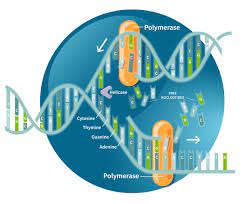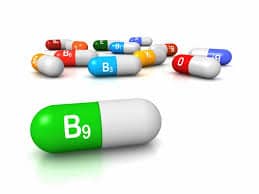How Does a Lack of Adequate Folate Contribute to Cancer?
 Folate, also known as vitamin B9, plays a critical role in DNA synthesis, repair, and methylation processes in the body. These functions are essential for maintaining the integrity of your genetic material and preventing mutations that can lead to cancer. When there is a lack of adequate folate, it can contribute to cancer in several ways:
Folate, also known as vitamin B9, plays a critical role in DNA synthesis, repair, and methylation processes in the body. These functions are essential for maintaining the integrity of your genetic material and preventing mutations that can lead to cancer. When there is a lack of adequate folate, it can contribute to cancer in several ways:
Impaired DNA synthesis: Folate is necessary for the production of nucleotides, which are the building blocks of DNA. Inadequate folate levels can slow down the synthesis of DNA, potentially leading to errors and mutations in the genetic code, which may increase the risk of cancer.
 Altered DNA methylation: Folate is involved in a process called DNA methylation, which helps regulate gene expression and maintain the stability of the genome. Insufficient folate can disrupt this process, leading to abnormal gene activity, including the activation of oncogenes (genes that promote cancer) and the silencing of tumor-suppressor genes (genes that inhibit cancer).
Altered DNA methylation: Folate is involved in a process called DNA methylation, which helps regulate gene expression and maintain the stability of the genome. Insufficient folate can disrupt this process, leading to abnormal gene activity, including the activation of oncogenes (genes that promote cancer) and the silencing of tumor-suppressor genes (genes that inhibit cancer).
Increased homocysteine levels: A lack of folate can lead to elevated levels of homocysteine, an amino acid associated with inflammation and oxidative stress. High homocysteine levels have been linked to an increased risk of various cancers, as they can damage DNA and contribute to tumor development.
Impaired repair of DNA damage: Folate is also involved in repairing damaged DNA through a process called DNA repair. Inadequate folate can hinder the body’s ability to fix DNA lesions and mutations, making it more likely that damaged cells can progress into cancerous cells.

A well-balanced diet that includes foods rich in folate, such as leafy greens, legumes, and fortified cereals, can help maintain optimal folate levels and reduce the risk of folate-related cancer issues. However, it’s essential to consult with a healthcare professional before making significant dietary changes or taking supplements, as individual requirements may vary, and excessive intake can have adverse effects as well.

